Lifehouse's Jason Wade on 20 years of songwriting
How a 15 year-old's first song sold four million
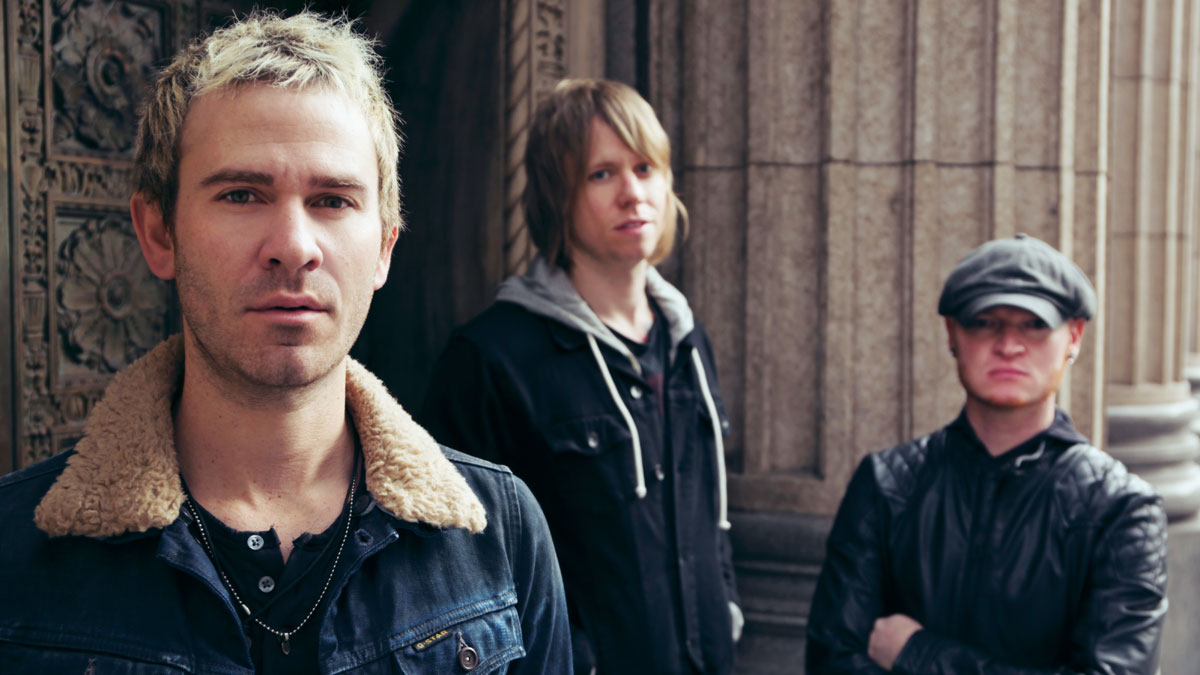
Introduction
Lifehouse’s Jason Wade shares two decades of songwriting insight, and explains why their new album saw him go back to his roots...
If you’ve ever tried your hand at songwriting - and every guitar player should - you will find it’s something you get better at over time, and that means your first efforts may be better off forgotten.
Wade’s a melodic rock songwriter with emotional depth and more hooks than a tackle box
But a 15-year-old Jason Wade’s first composition, Trying, was so strong it ended up on his band’s debut album No Name Face, selling over four million copies with a remarkable musical maturity that has made it stand the test of time.
Since then, backed up by bandmates Bryce Soderberg and Rick Woolstenhulme Jr, he’s continued to prove himself a melodic rock songwriter with emotional depth and more hooks than a tackle box.
Now, 20 years on from that first song, Lifehouse have released Out Of The Wasteland; an album that touches on Jason’s roots as a songwriter. We talked about Jason’s journey so far, and discussed the songwriting wisdom he’s picked up along the way.
Don't Miss
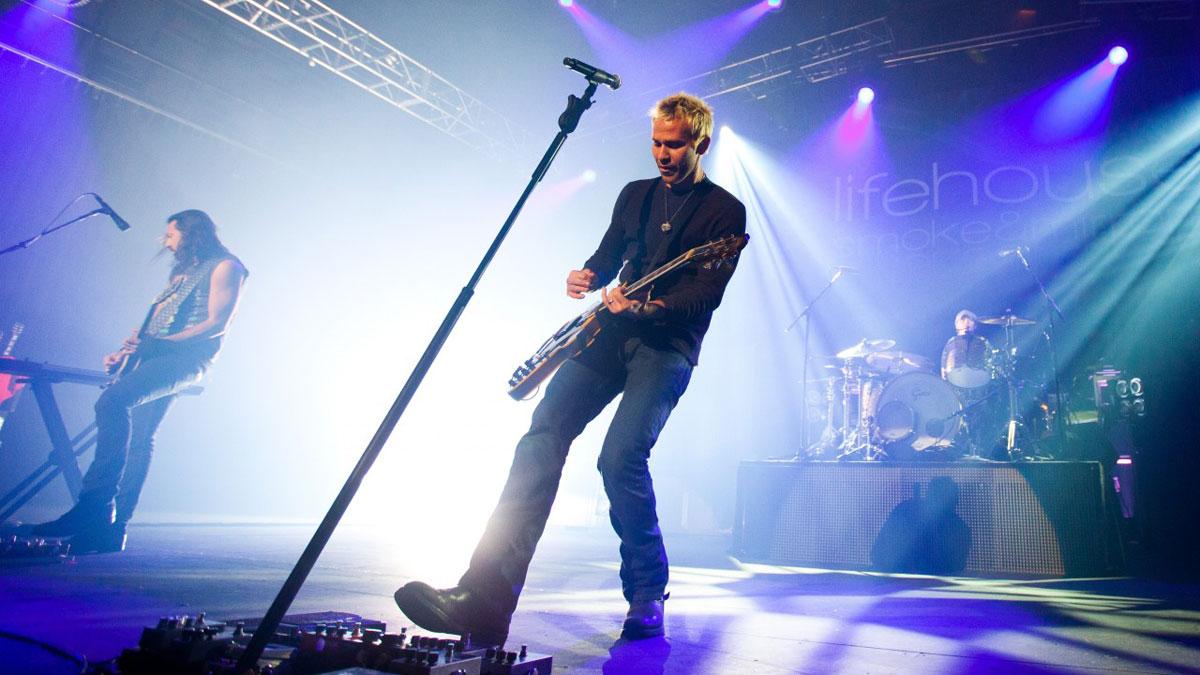
Into the Wasteland
How do you feel about Out Of The Wasteland compared to past Lifehouse albums?
“With our last few albums, we definitely took some liberties and tried to stretch outside of our genre a little bit. It was really fun but it’s actually refreshing to return to a sound that we haven’t done in 14, 15 years. It’s like putting on an old pair of shoes I guess.”
What is the key song that you feel reflects that the most?
It’s actually refreshing to return to a sound that we haven’t done in 14, 15 years
“There were two of them actually. There was the first single, Hurricane, and the first song we put out as a kind of teaser track, Flight. Both of those songs, when I wrote them, they really reminded me of our older sound, like quintessential Lifehouse songs.
“And I hadn’t written any songs like that in a while, so I got the band together in a room and played them a handful of songs. Those two songs were a catalyst that brought this whole record to fruition.
“[With Flight] I hadn’t written a song like that in a long time where I sat at the piano, closed my eyes, and it’s very much a stream of consciousness.
“It kind of took off on its own and that made me excited to get the band back in a room and think about doing a new album together.”
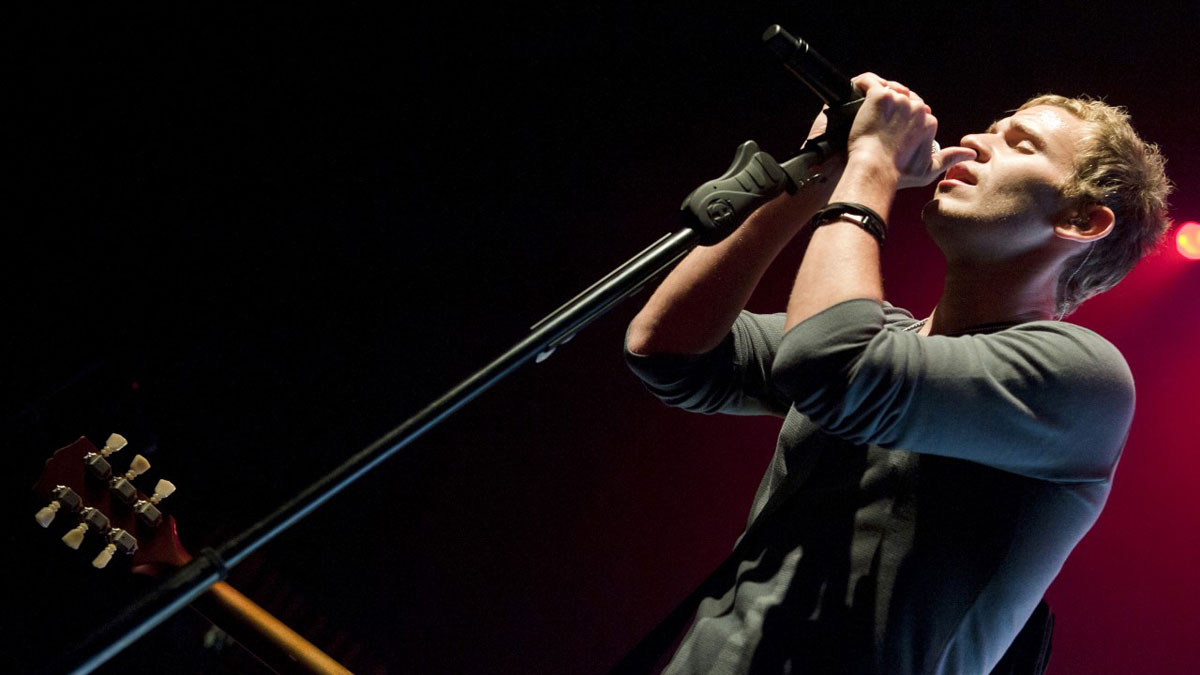
Comfort zone
When did you start writing on the piano?
“I think 2004 or 2005, in my earlier days it was all just acoustic and electric guitar. Then I bought a Wurlitzer when I was 23 or 24 and started writing songs here and there, maybe one song per record would be on piano.
“With this album in particular I think I wrote four or five different tracks on piano. So I think I needed to sit down with an instrument I wasn’t completely familiar with, just to come up with some new fresh ideas.
After 15, 16 years writing on the same instrument you start to become predicable
“Because after 15, 16 years writing on the same instrument you start to become predicable. You start to go to the same places; the same chord changes, the same melodies start coming out.
“So I think it’s essential for all of us to try to come up with something a little bit different. We’re not going to reinvent the wheel but you definitely need to come up to something that is interesting to you.”
So leaving a comfort zone is something you would recommend to other guitar playing songwriters who feel stuck in a rut?
“Absolutely, even simple things like coming up with various different tunings; you might be playing the same chords but they’ll sound different. They’ll evoke a different emotion and make you sing a different melody.
“I have an acoustic in Nashville tuning that I write in [E,A,D and G tuned up an octave] and I play a D, G or Em and it sounds different because it’s not what you’re used to. Anything that can get you out of a rut of going back to the same chord progressions over and over again.”
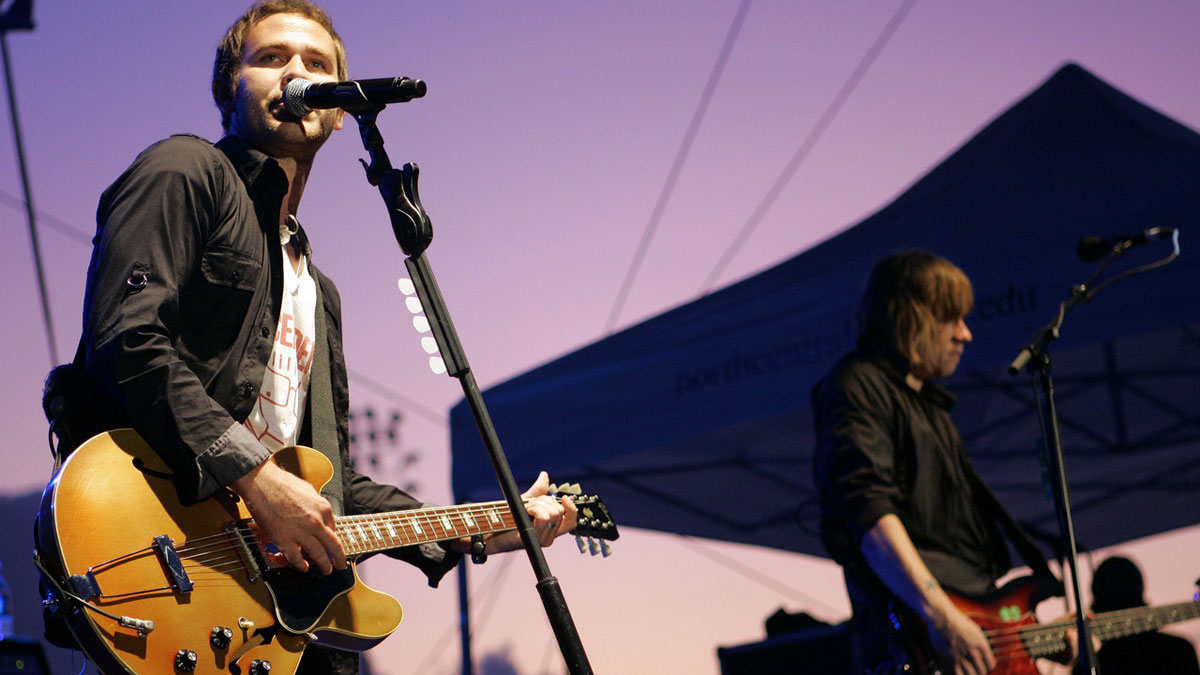
Stop-starting
Acoustic fingerpicking has become part of your writing too; the song Wish especially...
“I think I learned my fingerpicking style from my mom actually. She always had this 12-string Washburn laying around the house and I always remember her staying late up at night and she always had this very distinctive style of picking.
We’ll go and see a movie or go get some food and just reset the palette
“I think I absorbed that from her when I started playing the guitar when I was around 14. Wish came out of just sitting down with an acoustic guitar and the pattern and song just kind of wrote itself.”
Do you usually sit down with a plan to write, or just wait for inspiration?
“In the last two years I’ve tried to go into the studio with my engineering friend, maybe four or five times out of a week. And, to be honest, some days it’s just not happening. I’ll come up with two or three ideas that I think are rubbish and I’ll throw them back into the digital air. We’ll go and see a movie or go get some food and just reset the palette, then go back into the studio.
When you’re trying to force something, it seems so flat and lifeless; it’s not breathing
“Sometimes that’s all you need; to stop thinking for a moment. To come back to the studio after you throw an idea out and then all of a sudden a track will start to take shape. And that’s what happened with Flight; I tried to write three different songs that day and I was getting really frustrated. Then we took a break, and right when we were about to quit, the song came.
“Songwriting is so interesting to me, and I think it always will be to me, because you can’t figure it out. You can’t figure out what that magic component is but when it’s there it’s so easy and effortless. It’s almost like you’re watching it… almost like an out of body experience.
“When you’re trying to force something, it seems so flat and lifeless; it’s not breathing. And I’ve read a lot interviews with different artists and then all say the same thing; they don’t know where that comes from. You just have to be aware that when you get that itch, something special is about to happen. And that’s when you want to put yourself in a position to capture it.”
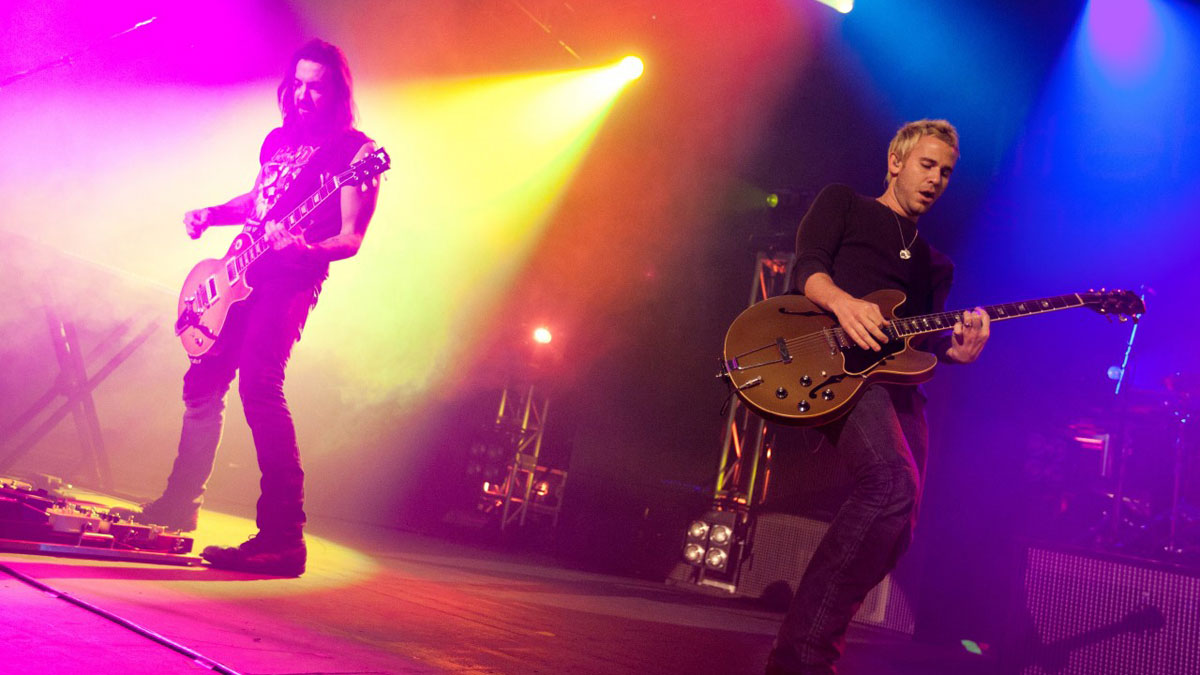
Teen titan
You were a teenager when you wrote the songs that became No Name Face, right?
“I started writing when I was 15. Trying is what I consider to be my first song. Then 16, 17 years old that’s when most of the first album started to write itself in my bedroom.
I feel the same about the songs. I think vocally I’ve gotten a little better over the years
“Then I met a producer, Ron Aniello, who produced our first two albums. He took me under his wing; a lot of my ideas didn’t have bridges so he taught me how to really craft a song in full completion and not just have cool parts here and there. It was a really formative two or three years from the age of 16 to 18.”
There’s a maturity in those songs that still holds up. Do they still resonate for you?
“I feel the same about the songs. I think vocally I’ve gotten a little better over the years. I hear some tuning issues and it’s hard to understand what I’m saying, but there’s an honesty there that I think really resonates with a lot of people.
“I was writing from a place of isolation and pain, and trying to figure out how to deal with all of these emotions. And I think that’s where the depth comes from. That was my outlet, that was the most positive thing I could have done; to put that pain and channel it into a song. Instead of going down some darker paths.”
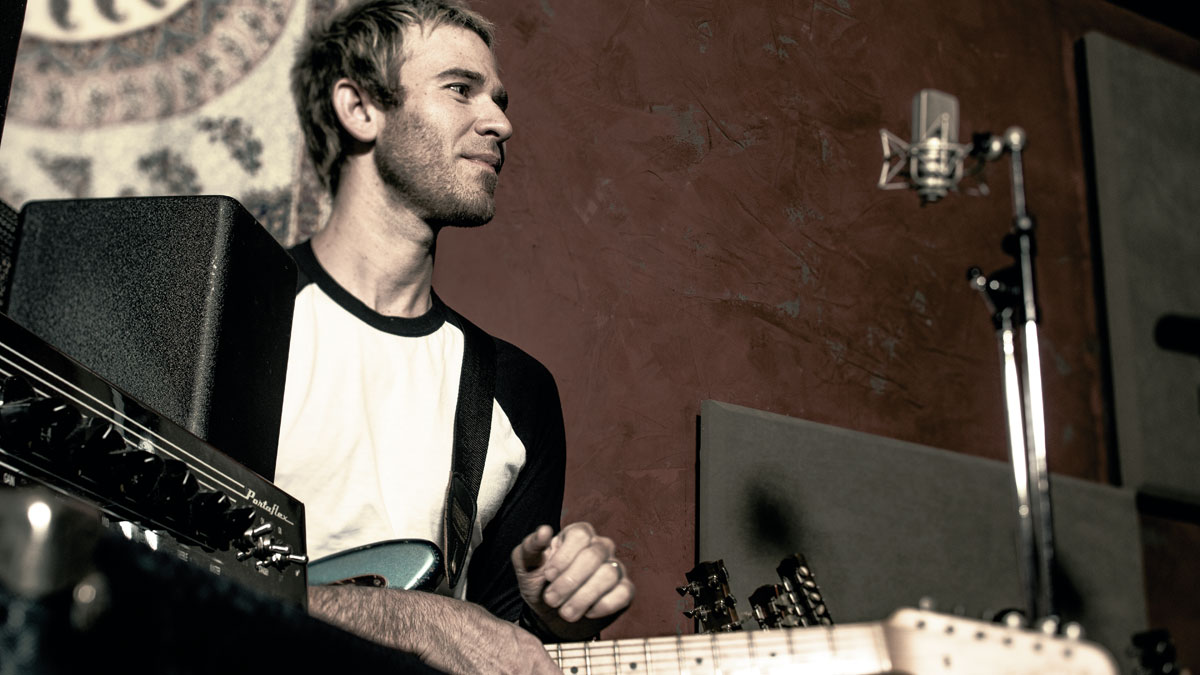
Be fearless
Did you then carry that into the recording?
“Yes, everything was new and fresh. There’s really something to be said about that. I think we tried to capture that on this album. Almost like; forget everything you’ve learned, all of the tricks in the studio, and go back to simplest form. Which is; does the song move you or not? Does it give you pimples on the arm? That’s really the only currency you have to tell you whether the song is alive or not.”
If you could give any advice to a songwriter starting out today what would it be?
Go back to simplest form. Which is; does the song move you or not?
“Probably to be fearless. I think a lot of young writers have a fear of what people will think about what they’re writing. If you can just be as honest as you possibly can and really be courageous enough to put yourself out there and put your real emotions on the line, that’s the only way people are going to feel you as an artist.
“It’s hard for a 15-year-old kid to be vulnerable, it’s such a hard age, especially now. But if you’re going to be a real artist, you have to put yourself out there to almost be ridiculed. But you have to be honest with your lyrics and your music. So my advice would be to be fearless, and not care what people think about it.”
Lifehouse’s new album, Out Of The Wasteland, is available now.
Don't Miss

Rob is the Reviews Editor for GuitarWorld.com and MusicRadar guitars, so spends most of his waking hours (and beyond) thinking about and trying the latest gear while making sure our reviews team is giving you thorough and honest tests of it. He's worked for guitar mags and sites as a writer and editor for nearly 20 years but still winces at the thought of restringing anything with a Floyd Rose.
"Reggae is more freeform than the blues. But more important, reggae is for everyone": Bob Marley and the Wailers' Catch a Fire, track-by-track
“Part of a beautiful American tradition”: A music theory expert explains the country roots of Beyoncé’s Texas Hold ‘Em, and why it also owes a debt to the blues
"Reggae is more freeform than the blues. But more important, reggae is for everyone": Bob Marley and the Wailers' Catch a Fire, track-by-track
“Part of a beautiful American tradition”: A music theory expert explains the country roots of Beyoncé’s Texas Hold ‘Em, and why it also owes a debt to the blues











